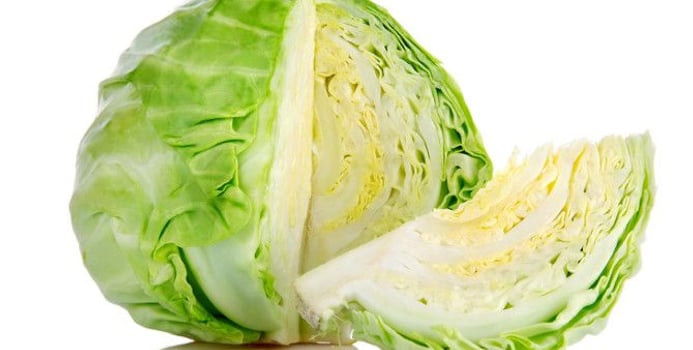Cabbage is one of the most popular vegetables in kitchen gardens, coming in the color of red or green. You can cook the vegetable or eat it raw. If cooked, it is best to do so just slightly. Prolonged cooking destroys most of the nutrients. When eaten raw, it delivers plenty of nutrients into the body. It can be used in raw form in various salad mixes. Half a pound of cabbage yields all the recommended daily allowances for vitamins C and E. Other vitamins in the vegetable are A, B1, B2, B6, K and folic acid. Mineral content includes calcium, sulfur, iron, magnesium, phosphorous and potassium. It also contains trace amounts of iron, copper, manganese, selenium and zinc. Cabbage also contains antioxidants and fiber. It has several beneficial effects when integrated in the diet.
Digestion
Cabbage is rich in dietary fiber, supporting optimal performance of the digestive system. Fiber acts as an excellent detoxifier. It thoroughly cleanses the stomach and intestines. It has a mild laxative effect which helps to stimulate bowel movement and helps to prevent constipation. As cabbage detoxifies the digestive system, it also helps to get rid of harmful toxins. This helps to prevent the risk of various diseases and cancers.
Antioxidant
Cabbage is widely recognized as a rich source of antioxidants. The red variety contains even more antioxidants than the green type. It is also rich in vitamin C, which has anti-oxidation properties. Antioxidants enhance the body's capacity to fight infections and diseases and capture free radicals that can be harmful to healthy cells.
Immunity
Cabbage is rich in various phytonutrients, which helps support the immune system. They reduce the harmful activities of free radicals and toxins. They also protect cells from the damage caused by carcinogenic agents. The vegetable has a compound that helps to regulate cells within the immune system. This boosts the capacity of the immune system to withstand infections and fight diseases.
Anti-Inflammatory
Various nutrients in this popular vegetable have anti-inflammatory properties. These help to heal scars and disinfect wounds. Cabbage can be applied to various inflammations to alleviate distress. Simply grate some cabbage or crush a leaf with a rolling pin. Apply it onto bug stings, infections, blisters or burns. Secure with a bandage and change when the cabbage turns yellow. Clean the affected area whenever you change the treatment. It soothes discomforts and relieves pain.
Anti-Carcinogenic
Cabbage is widely regarded as an excellent food to help prevent cancer. It has been established that fresh cabbage juice has beneficial effects in the treatment of various cancers. When taken daily, it helps to treat colon, stomach, lung, breast and ovarian cancers. Cabbage has a compound called sulforaphane that protects cells from carcinogenic attacks. It has also been proven to be an effective treatment for ulcers within the digestive tract.
Considerations
Raw cabbage has a slightly bitter taste. This makes it difficult for some people to consume. However, benefits of the vegetable are far greater when consumed raw. You may want to mix cabbage juice with another fruit juice to make it more palatable. You could also add some honey to drown the bitter taste. The vegetable may cause gas in some people, particularly when cooked.



